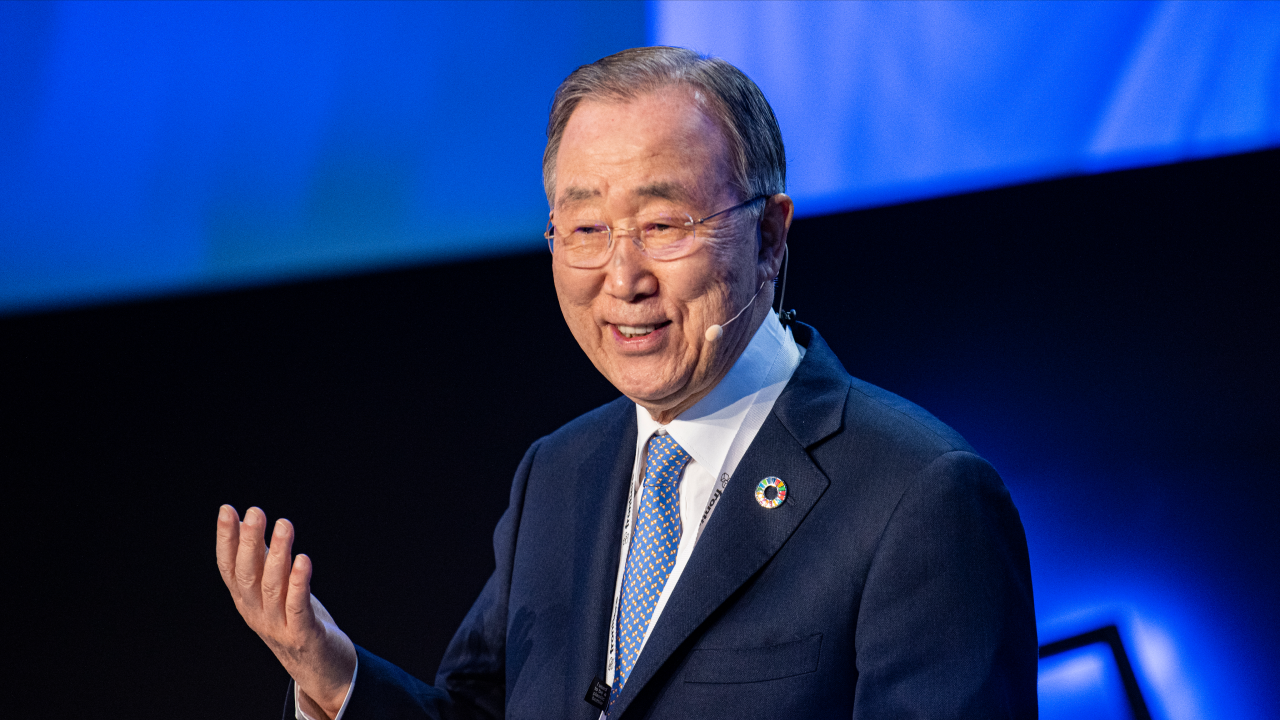
Videos from previous speakers
Thanks to science, we have never lived longer, healthier lives than we do today – but the challenges we face have never been greater or more complex. Hear from previous Frontiers Forum speakers on science-led solutions for issues ranging from healthspans to COVID-19, economics to genomics, and ecological restoration to sustainable agriculture.

Prof Gerold Stucki and colleagues examine how the integration of biological and lived experiences of health could revolutionize health systems and strategies.
Dr Paul Behrens explores how a Great Food Transition and other radical transformations can avert the climate crisis and steer humanity toward a hopeful, healthier future.
Prof Barbara Natterson-Horowitz and colleagues examine how evolutionary medicine can help inspire new ways to prevent and treat disease.
Prof Thomas Hartung and colleagues take a deep dive into the scientific, technological and ethical steps for realizing the full potential of organoid intelligence.
Dr Kamila Markram
Co-founder and CEO, Frontiers
Dr Kamila Markram describes how science has improved human lives over the past 200 years and the consequences of this on the Earth's planetary boundaries – ending with an urgent message to accelerate the global transition to open science to solve the climate crisis before it's too late.
Al Gore
Former Vice President and Nobel Laureate | USA
Al Gore speaks on the need for open science, collaboration, accountability and transparency in reaching our climate goals and achieving effective decarbonization efforts across the global economy.
Ban Ki-moon
United Nations | South Korea
Ban Ki-moon explains the need for global solutions to address global crises such as armed conflict, pandemics, and climate change that are inherently intertwined and interconnected.
Dr Jane Goodall
Jane Goodall Institute | UK
Dr Goodall outlines why she believes humanity’s indomitable spirit will overcome the climate crisis, and how the scientific community adds to her hope for the future.
Prof Johan Rockström
Potsdam Institute for Climate Impact Research | Germany
Prof Rockström gives crucial scientific evidence to stay within 1.5°C of warming to keep our planet in the only state we know that can support humanity, the Holocene.
Prof Yuval Noah Harari
Hebrew University of Jerusalem | Israel
Prof Harari explains the potential for artificial intelligence to become our planet’s first inorganic lifeform and the threat this ‘alien’ intelligence poses to human civilizations, without becoming conscious or able to navigate the physical world.
Prof Cynthia Kenyon
Calico Life Sciences | USA
Prof Kenyon outlines newly discovered treatments to extend health and lifespans in animals, and explains what we need to do to translate these findings to humans.
Prof Rudolf Jaenisch
Massachusetts Institute of Technology | USA
Prof Jaenisch presents evidence that SARS-CoV-2 RNA can retro-integrate into the human genome, postulating whether this could explain why some people experience long COVID.
Prof Kevin Esvelt
Massachusetts Institute of Technology | USA
Prof Esvelt outlines our increasingly powerful ability to genetically edit and reprogram entire species – and the defenses, checks, and balances needed to mitigate any potential unintended consequences from ecological engineering.
Dr Britt Wray
Stanford University | USA
Dr Wray reveals a surprising truth: while climate change and ecological crises can push us into a state of eco-anxiety, numbness, and fatalism, this grief can also mobilize and spark action that both improves mental health and benefits the planet.
Dr Seth Berkley
Gavi, the Vaccine Alliance | Switzerland
Dr Berkley explains the historic challenges to vaccinating people in low-income countries and how Gavi has successfully overcome these problems.
Prof Johan Rockström, Prof Yuval Noah Harari, Prof Mary Scholes and Vivienne Parry
Prof Rockström, Prof Harari, and Prof Scholes discuss the challenges of reaching net zero, what additional science is required to make the transition possible, effective communication strategies and policies to mobilize the stakeholders involved, and how equity can be achieved on a global scale.
Frontiers Planet Prize
Prof Carlos Peres
University of East Anglia | UK
United Kingdom International Champion Prof Peres demonstrates that community-based nature conservation programs can improve the livelihoods of rural families living in Amazonian protected areas.
Frontiers Planet Prize
Prof Mark New
University of Cape Town | South Africa
South Africa International Champion Prof New shows that removing alien invasive trees from water catchments can reduce water stress during droughts in South Africa – filling an evidence gap on the efficacy of habitat restoration.
Frontiers Planet Prize
Dr Paul Behrens
Leiden University | Netherlands
Netherlands International Champion Dr Behrens quantifies the reduction in greenhouse gas emissions if high-income countries eat less meat and restore land spared from animal farming.
Frontiers Planet Prize
Prof Baojing Gu
Zhejiang University | China
China International Champion Prof Gu shows a map of how nitrogen emissions contribute to deadly air pollution, and that ammonia is a better target than nitrogen oxides for tackling this global health threat.
Frontiers Community Summit
Dr Mirjam Eckert
Chief Publishing Officer, Frontiers
Dr Mirjam Eckert shows how quality at scale is possible, illustrating how this has been achieved through the journeys undertaken by Frontiers’ 194 journals and 1,500 research communities… and counting.
Frontiers Community Summit
Dr Kamila Markram
Co-founder and CEO, Frontiers
Dr Kamila Markram outlines progress on the global transition to open science – and how this will accelerate solutions for healthy lives on a healthy planet.
Frontiers Community Summit
Dr Fred Fenter
Chief Executive Editor, Frontiers
Dr Fred Fenter compares the cost of publishing open access with traditional subscription models – and explains how Frontiers is working with institutions on simple and transparent partnerships plus to recognize the work of our editors.
Frontiers Community Summit
Daniel Petrariu
Chief Technology Officer, Frontiers
Daniel Petrariu explains how we co-create technologies and tools with our editors to safeguard integrity and ensure quality control at every stage of the journal process.
Frontiers Community Summit
Dimitri Christodoulou
Director of Publishing Operations, Frontiers
Everything published by Frontiers is out in the open – fully accountable and available for scrutiny by all. Dimitri Christodoulou outlines quality control processes and tools for ensuring scientific excellence at scale.
Frontiers Community Summit
Dr Laure Sonnier
Executive Editor, Frontiers in Science, Frontiers
Dr Laure Sonnier introduces Frontiers’ flagship, multidisciplinary, open access journal, focused on transformational science for healthy lives on a healthy planet.


























